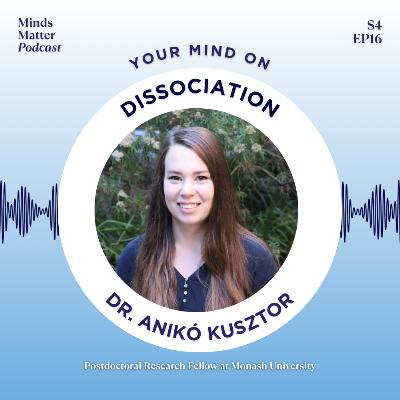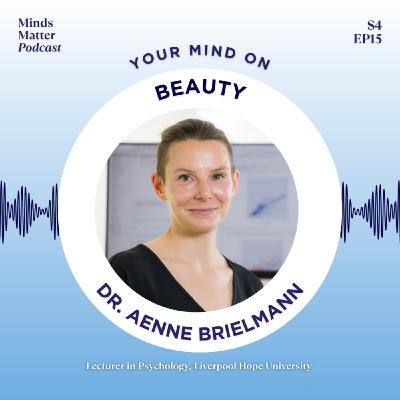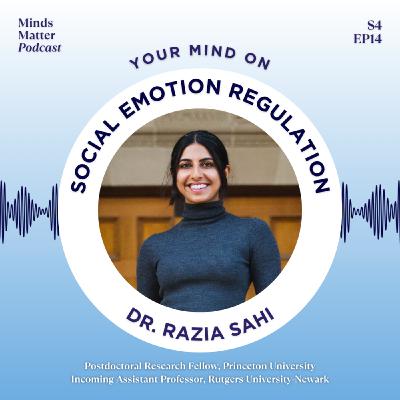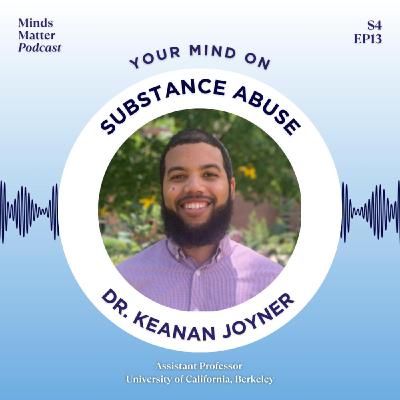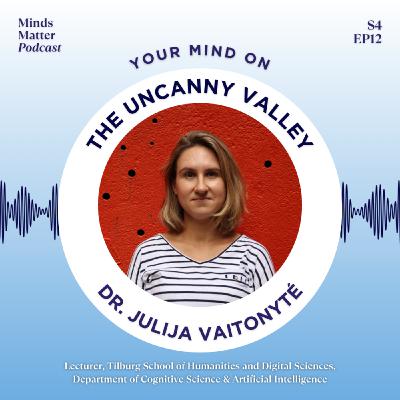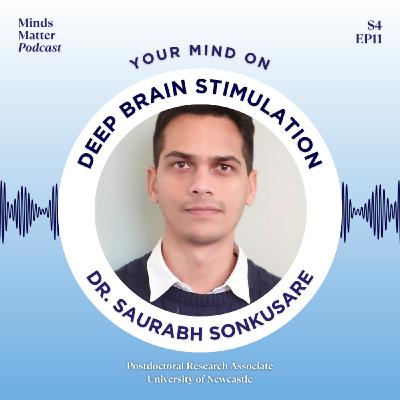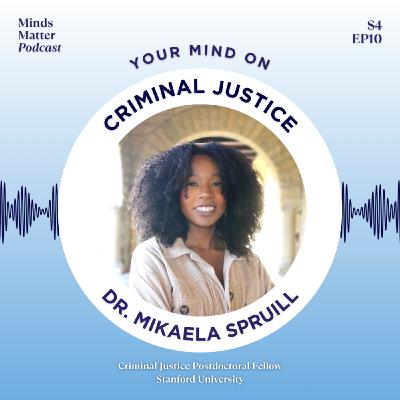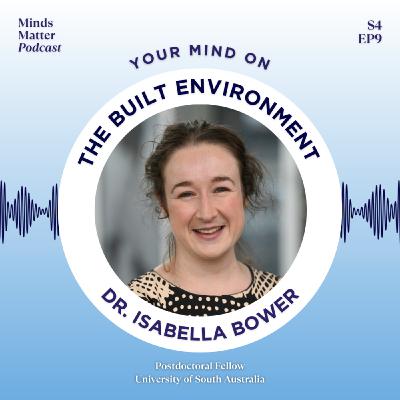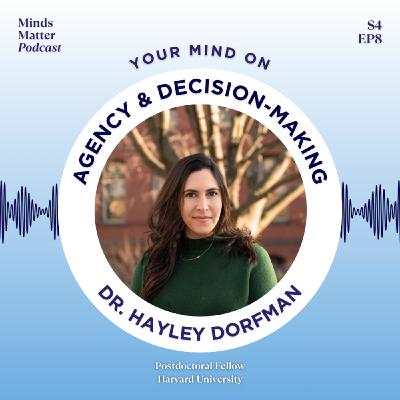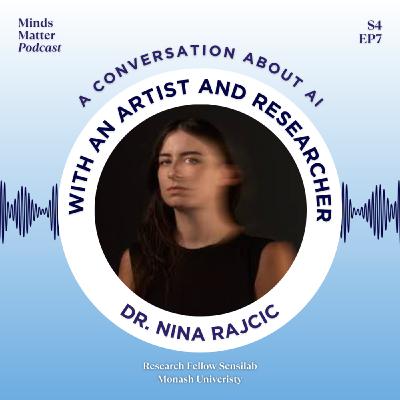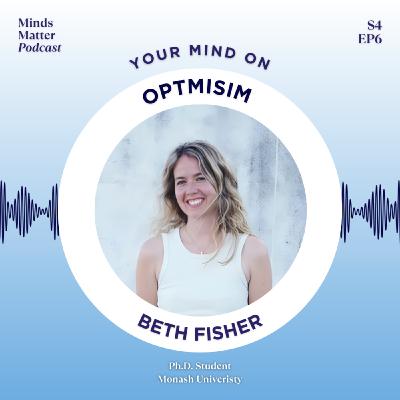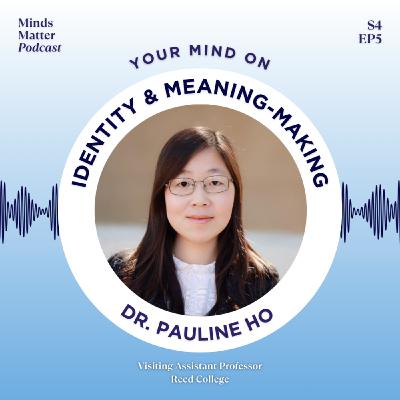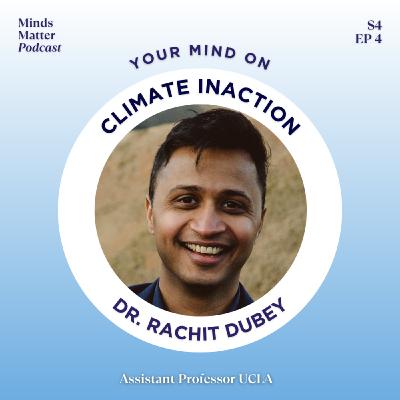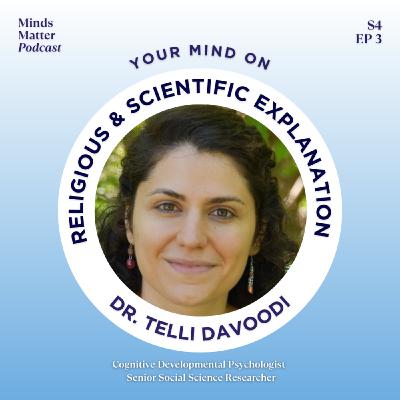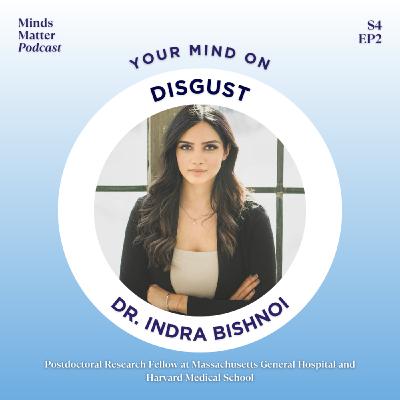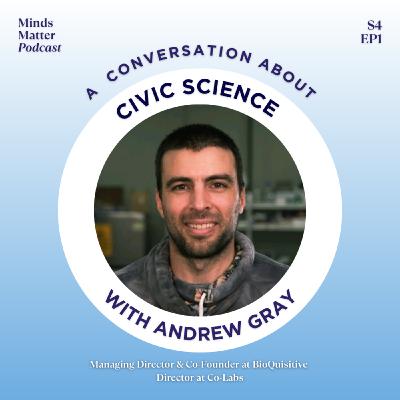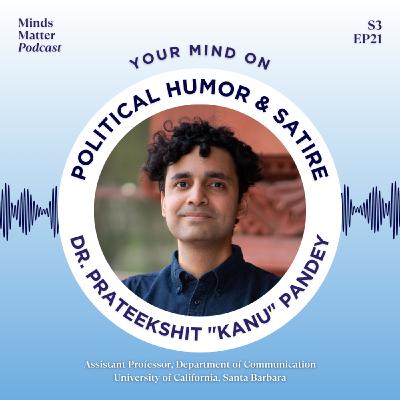Discover Minds Matter
Minds Matter

Minds Matter
Author: Beth Fisher and Ava Ma de Sousa
Subscribed: 12Played: 120Subscribe
Share
© Beth Fisher and Ava Ma de Sousa 2022
Description
Learn from cutting edge researchers in neuroscience and psychology with PhD students Beth Fisher and Ava Ma de Sousa. On Minds Matter, we explore a range of subjects, from conspiracy theories to falling in love, to nostalgia. We discuss the neuroscientific and psychological research behind these issues while talking through our own personal experiences.
68 Episodes
Reverse
What makes for a great conversation? Dr. Sebastian Spear shares his research using hyperscanning (neuroimaging on multiple brains at once) to study people's brains during real conversations. We discuss differences in conversations between friends and strangers, and why exploration might be the crucial piece making for good conversations. Beth and Ava defend the underrated art of small talk.
How can dissociation lead to positive and negative outcomes, and how does it affect an individual? Dr. Anikó Kusztor joins us this week to discuss the results of dissociation, and how they vary from person to person. Ava and Beth recount their personal dissociative experiences and contemplate where they fall on the spectrum of dissociation.
What is beauty, and just how subjective is it? Dr. Aenne Brielmann joins us this week to discuss how our minds react when we see or find something beautiful. Ava and Beth discuss the age old question in terms of how emotion affects perception, and further dive into the philosophy of beauty.
How do you handle tough emotions? Do you deal with things on your own or with support from others? Dr. Razia Sahi joins us to explore why leaning on others might be more powerful than we think. She shares her research on social emotion regulation, showing that when someone helps us reframe a difficult situation, it can be even more effective than doing it alone, and how the emotional benefits can last well beyond the moment. From reappraisal and validation to hand-holding and voice tone, we explore the many ways others can help us navigate difficult emotions. Beth and Ava discuss differences in how people might prefer to give and receive social support.
What really is addiction—and can we actually get addicted to our phones? Dr. Keanan Joyner joins us to discuss how addiction works from both a biological and social lens. He shares insights from his lab’s research on drug use, genetics, and disinhibition, and explains why substance abuse isn’t just about individual choice. Ava and Beth also discuss screen use, dopamine, and what counts as “real” addiction. Plus, Dr. Joyner shares why EEG studies often exclude Black participants, and what his lab is doing to change that.
Have you ever seen a robot that looks almost human, but something feels a bit off? Did it make you feel unsettled, and maybe a bit creeped out? Dr. Yulia Vaitonytė joins us to discuss her research on this phenomenon of the uncanny valley. She unpacks the brain and perceptual cues behind this eeriness, and tells us why certain kinds of imperfections might actually help robots appear more real. Beth & Ava play a game to see if they can recognize real faces from artificially generated ones.
Deep Brain Stimulation (DBS) is a ground-breaking technique that uses electrical impulses to treat conditions like epilepsy and depression through electrodes implanted in the brain. In this episode we are joined by Dr. Saurabh Sonkusare to learn about how DBS works and how it can be used in psychiatry and research. Ava and Beth discuss how DBS research findings may have implications for philosophical ideas of the self.
What comes to mind when you hear the term “objectively reasonable”? In this episode, Dr. Mikaela Spruill joins us to discuss how legal standards in criminal justice aren't as neutral as they may seem. We discuss how social stratification and lived experience influence jurors' priors, the idea of legal objectivity, and why diverse juries matter.
Have you ever wondered how the built environment effects your mood? Is it true that red rooms make you angry? This week we sit down with Dr. Isabella Bower to discuss her on research on how the built environment can impact our mental health. Dr. Bower shares how the colour and size of rooms may influence us and how we should think about designing the built environment for mental health. Beth and Ava share how they feel that space effects them.
How do our beliefs about ourselves and the world influence the way we learn and make decisions? Dr. Hayley Dorfman joins us to discuss how internal representations like sense of control shape our learning processes. We discuss the interplay between reinforcement learning and Bayesian inference, how agency beliefs impact learning from positive and negative feedback, and how these processes change across different developmental stages/
This week on Minds Matter both Ava and Beth chat with Dr. Nina Rajcic about her work using LLMs in her art practice giving us a new perspectives for thinking about AI. Dr. Rajcic talks about her work and how its meaning has changed as LLMs continue to develop. We share our thoughts about the future of AI in both tech and art.
In a very special episode, our very own Beth Fisher tells us all about optimism! Beth shares what optimism is, how her recent research shows psilocybin can boost optimism in rats, and what this might mean for humans. We also discuss how optimism shapes our engagement with the world, and if and when it can become too much of a good thing.
How do our identities shift and change over our lifetimes? Dr. Pauline Ho joins us to explore three pathways of identity formation—consolidating, cumulative, and transformative—and how each is shaped by personal histories, social contexts, and important life events. Building off her research with African American college students, Dr. Ho discusses how these pathways could extend to other groups and identities. Beth and Ava chat about meaning-making in their own identities.
The climate crisis demands urgent action, yet many people struggle to make meaningful changes. This week, we’re joined by Dr. Rachit Dubey to hear about the the psychology behind climate inaction. Dr. Dubey shares insights into why humans are wired to seek rewards, leading to consumerism—a core driver of environmental issues. He breaks down how understanding these psychological patterns can help shape more effective climate policies. We learn the best ways to communicate climate change information. Beth and Ava reflect on how their own experiences have influenced their environmental concerns and actions.
How often do you find yourself pondering existential questions—like the meaning of life or what happens after we die? This week, we're joined by Dr. Telli Davoodi, to speak about her research on how both scientific and religious explanations address these questions and psychological roles they play in our lives. Dr. Davoodi also shares insights from her cross-cultural studies, exploring how children form beliefs about concepts they can’t directly observe. In this moving episode, Beth and Ava open up about their own beliefs and personal experiences with finding meaning in life. Spoiler alert: Beth gets emotional!
Have you ever felt disgusted? Have you wondered what caused that feeling? This week Dr. Indra Bishnoi explains to us the science behind disgust and its relationship to nausea. She shares her research on conditioned induced nausea and chemotherapy, explaining the importance of finding a treatment to treat this disgust response. We talk about how anxiety can feelings of nausea and Beth and Ava share their own feelings on disgust.
Welcome back to season 4 of Minds Matter! We begin our season with a conversation about civic science with Andrew Gray, co-founder of BioQuisitive a civic science hub in Brunswick, Australia. Can there be ways to create research outside a university? And what does it look like to democratise science? Andrew talks about his inspiring journey to get to where he is today and we reflect non-traditional ways we can study, research, and learn.
In an age where politicians are both subjects and creators of memes, and outlets like The Daily Show shape public discourse, how is humor influencing our political engagement? Dr. Prateekshit "Kanu" Pandey shares research on humor's effects on the brain, and its differing roles across cultures, from the U.S. to India. Dr. Pandey, Ava & Beth reflect on whether humor good is for politics and civic engagement, or whether politics should remain strictly serious business.
New developments in AI are making headline news with many perspectives on what the future of AI holds. From Chat GPT to robots, there is lots of new information to take in! This week Dr. Abhilasha Ravichander answers our questions from the basics of AI to questions of AI and consciousness. She speaks to us about where the field is at now and discusses her research on hallucinations in Large Language Models and how they can help us understand how our data is being used. Ava and Beth talk about where they think the future is going.
How do behavioural and substance addictions relate to mental health? What are the risk factors for these disorders? This week Dr. Andrew Kim helps us answer these questions and discusses how we can best treat addictions and their mental heath co-morbidities. Dr Kim explains how we can use to research to train clinicians so patients can receive the best possible outcomes. Ava and Beth discuss their countries own medical systems .



